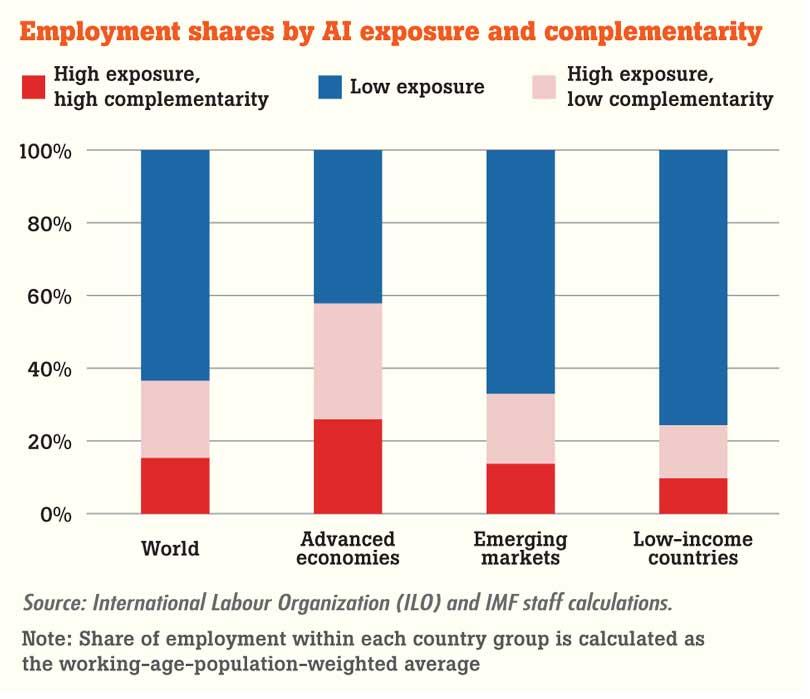Reply To:
Name - Reply Comment

The boom in technology is taking the world by storm but millions of employees are at risk as artificial intelligence (AI) is expected to affect almost 40 percent of jobs around the world, the International Monetary Fund (IMF) cautioned.
IMF Chief Kristalina Georgieva noted that while AI would replace some jobs and complement others, efforts are needed to ensure a careful balance of policies to tap its potential.
“The rapid advance of AI has captivated the world, causing both excitement and alarm and raising important questions about its potential impact on the global economy. The net effect is difficult to foresee, as AI will ripple through economies in complex ways. What we can say with some confidence is that we will need to come up with a set of policies to safely leverage the vast potential of AI for the benefit of humanity,” said Georgieva in her latest blog.
An analysis by the IMF showed that almost 40 percent of global employment is exposed to AI. Historically, automation and information technology have tended to affect routine tasks but one of the things that sets AI apart is its ability to impact high-skilled jobs.
As a result, advanced economies face greater risks from AI—but also more opportunities to leverage its benefits—compared with emerging market and developing economies, the IMF said.
In advanced economies, about 60 percent of jobs may be impacted by AI. Roughly half the exposed jobs may benefit from AI integration, enhancing productivity. For the other half, AI applications may execute key tasks currently performed by humans, which could lower labour demand, leading to lower wages and reduced hiring. In the most extreme cases, some of these jobs may disappear.
In emerging markets and low-income countries, by contrast, AI exposure is expected to be 40 percent and 26 percent. The IMF said these findings suggest emerging market and developing economies face fewer immediate disruptions from AI.
Many of these countries don’t have the infrastructure or skilled workforces to harness the benefits of AI, raising the risk that over time the technology could worsen inequality among nations.AI could also affect income and wealth inequality within countries.
“We may see polarisation within income brackets, with workers who can harness AI seeing an increase in their productivity and wages—and those who cannot falling behind,” said Georgieva
The effect on labour income will largely depend on the extent to which AI will complement high-income workers. If AI significantly complements higher-income workers, it may lead to a disproportionate increase in their labour income. Moreover, gains in productivity from firms that adopt AI will likely boost capital returns, which may also favour high earners. Both of these phenomena could exacerbate inequality, she said.
In most scenarios, AI will likely worsen overall inequality, a troubling trend that the policymakers must proactively address to prevent the technology from further stoking social tensions. “It is crucial for countries to establish comprehensive social safety nets and offer retraining programmes for vulnerable workers. In doing so, we can make the AI transition more inclusive, protecting livelihoods and curbing inequality,” she said.